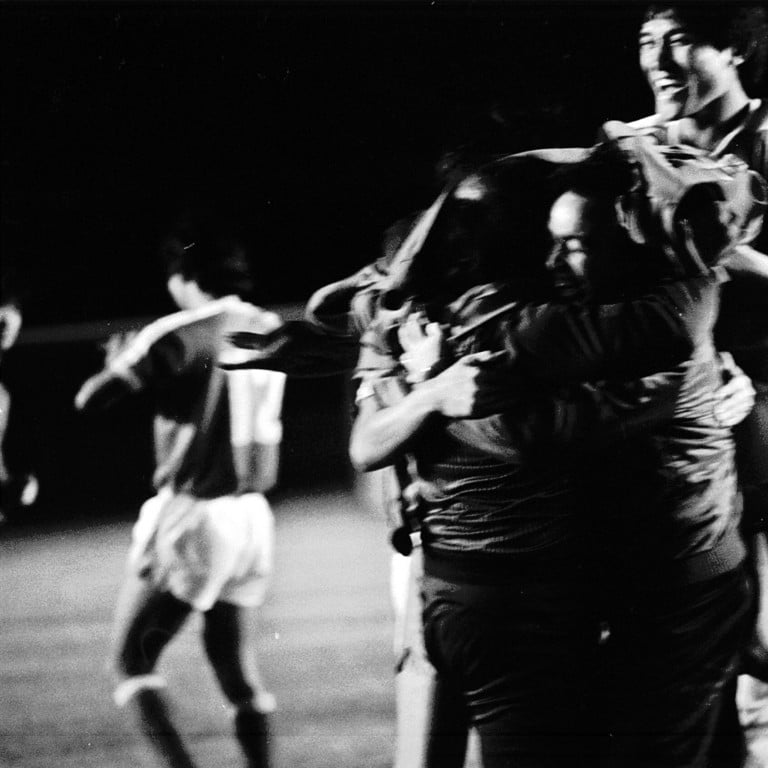
Hong Kong vs China: ‘May 19 Incident’ that ended the World Cup dreams of ‘Big Brother’
- Hong Kong football’s ‘finest hour’ came in Beijing in 1985, beating ‘Big Brother’ 2-1 in front of 80,000 hostile fans
- Loss that ended China’s Mexico ’86 hopes sparked riots and still hurts 35 years on
“The May 19 Incident” still casts a shadow over the Chinese game 35 years on from Hong Kong’s 2-1 win over “Big Brother” at Beijing’s Workers’ Stadium, ending China’s dream of qualifying for the 1986 Fifa World Cup in Mexico.
Not only was there embarrassment on the pitch but off it as some of the 80,000 fans rioted after the final whistle, overturning cars in scenes of unrest not seen since the revolution in 1949, with the PLA called in to restore order.
“HK win sparks riot” and “Siege of the Workers’ Stadium” ran the front page headlines in the South China Morning Post the following morning.
“Peking, May 19 [1985] – A magnificent Hong Kong team had their finest hour in international soccer here tonight when they beat China 2-1 to emerge champions of Asia Group 4A,” read the first line of that front page story.
While it was certainly Hong Kong’s finest hour, it was equally China’s darkest day.
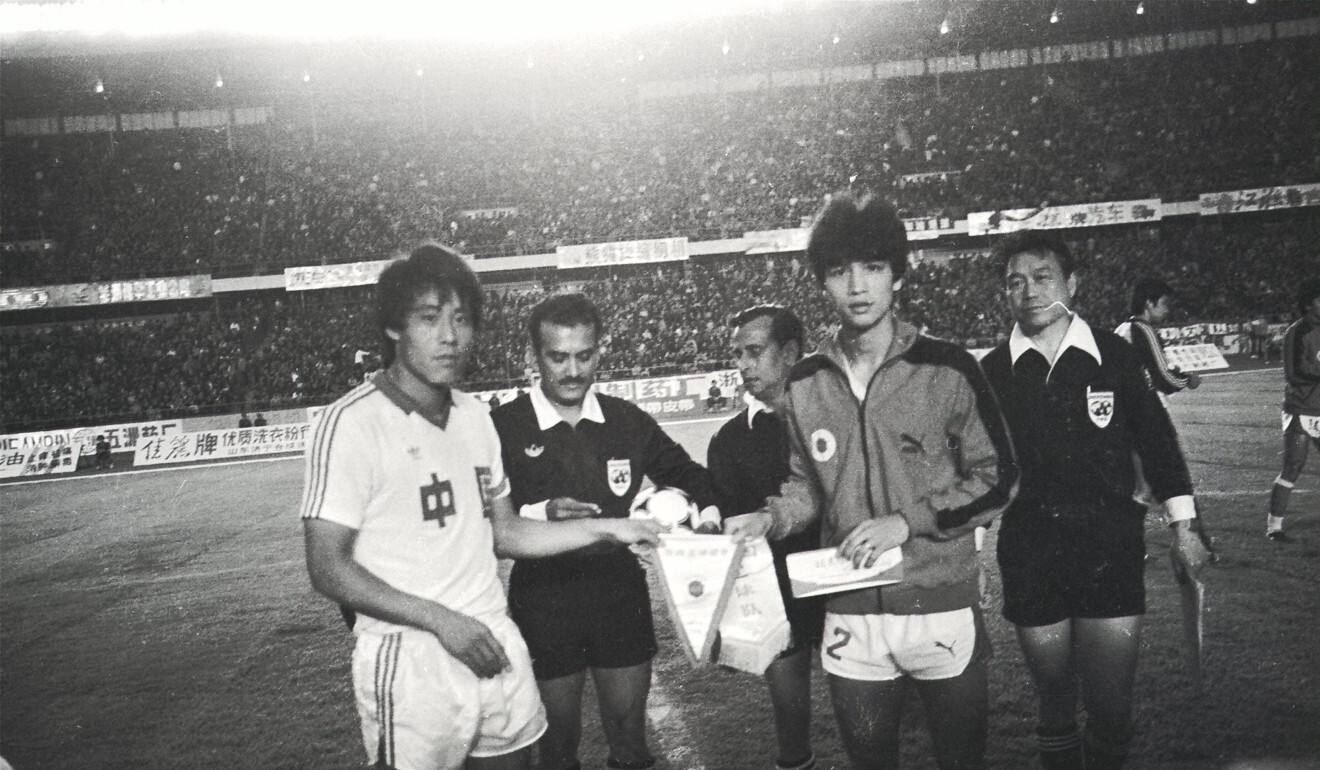
China had only needed a draw to progress to the next stage of qualification, and within touching distance of a first World Cup.
They had narrowly missed out on reaching the 1982 tournament in Spain, losing 2-1 to New Zealand in the play-off, and were expected to finally reach the promised land in Mexico.
The teams had met just weeks before, playing out a 0-0 draw at Government Stadium, which stood where the Hong Kong Stadium now stands, on February 17.
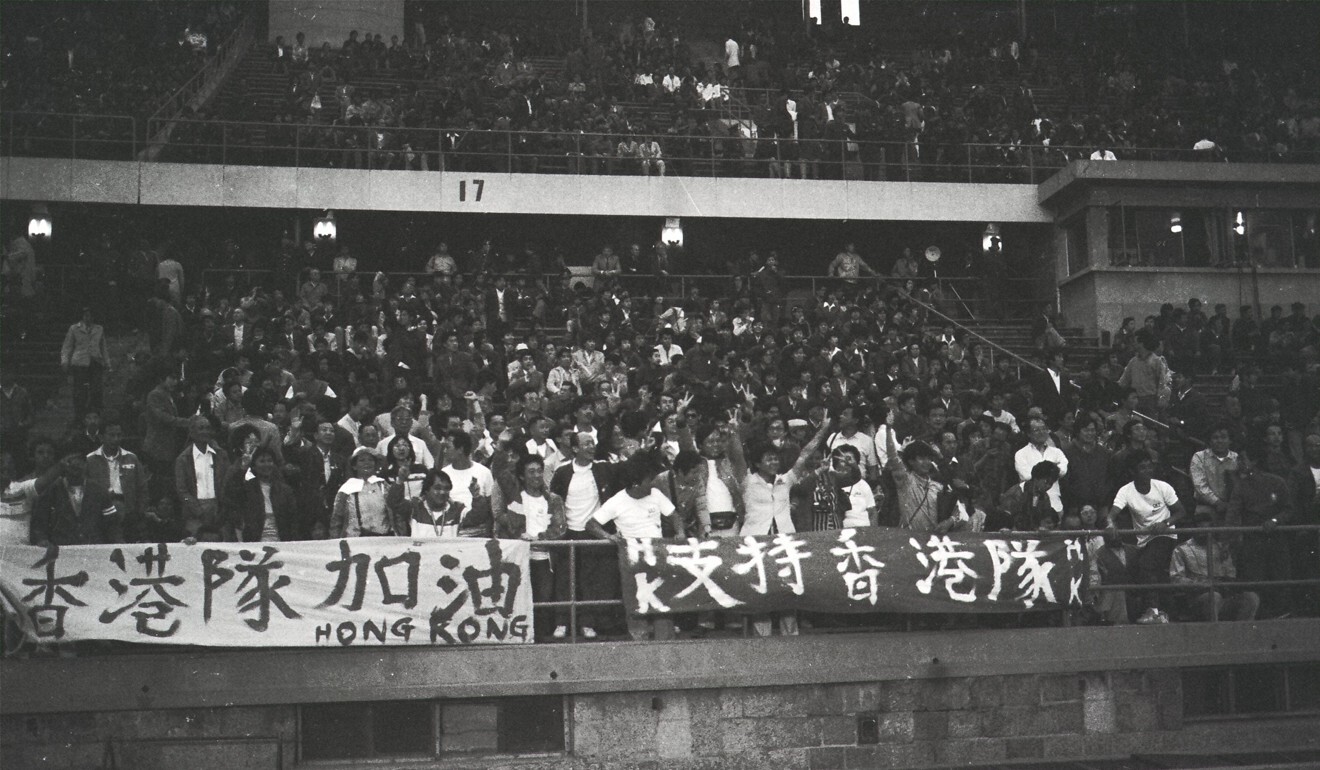
Both teams went into May’s rematch with nine points – iboth had twice seen off Macau and Brunei, who made up the group. China had rolled Macau 6-0 the week before they played Hong Kong.
With 80,000 packed into the Workers’ Stadium, and just a handful of fans from Hong Kong, China were expected to win. The “fanatical home crowd” booed the visitors and the hosts refused to shake hands with their opposition.
The Hong Kong players had not read the script and “a glorious night of soccer” followed for the visitors.
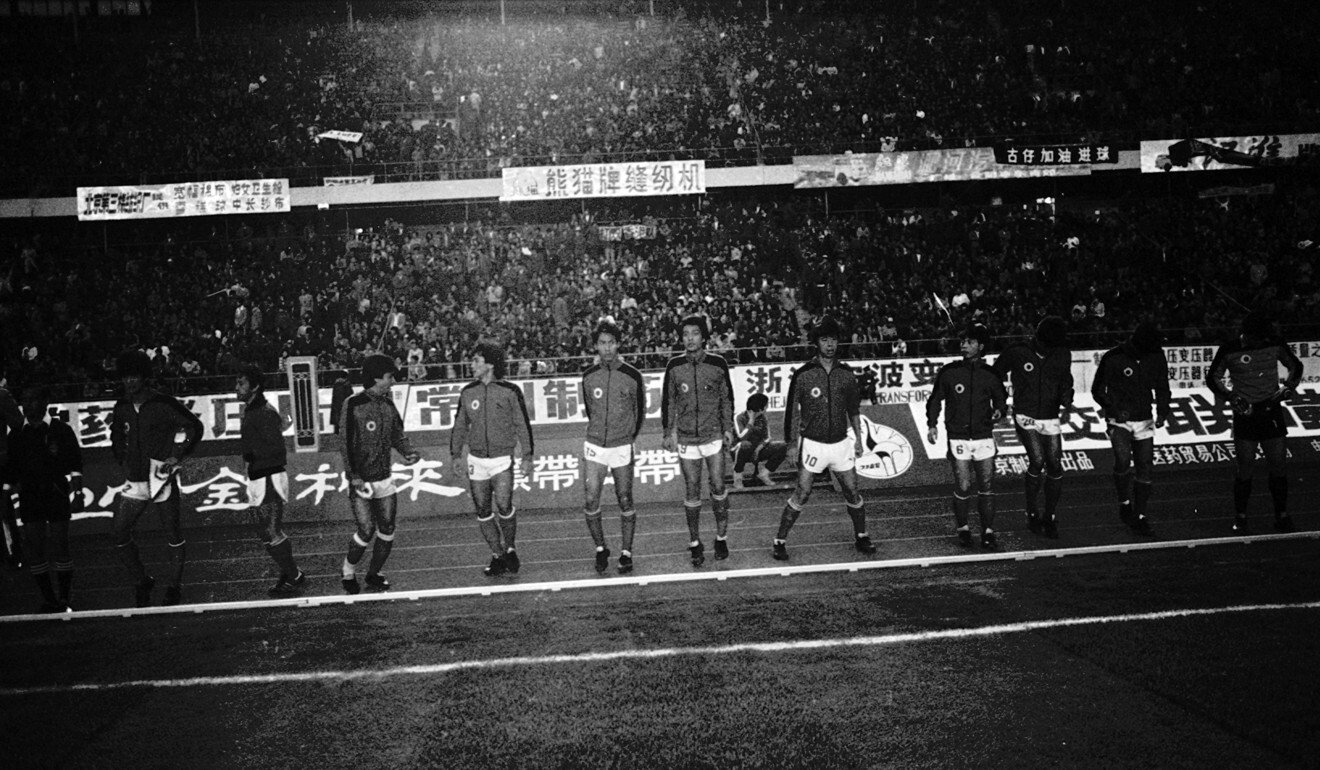
“With a passionate performance that stunned the capacity crowd in the 80,000-seater Workers’ Stadium, Hong Kong have put themselves in reach of a place in the World Cup finals in Mexico next year,” read the Post’s match report.
“But China underestimated Hong Kong – as indeed did many people in the territory. The chips were down tonight and Hong Kong responded with a matchless display,” it continued.
Hong Kong took the lead through Cheung Chi-tak in the 20th minute, sending their few fans into raptures.
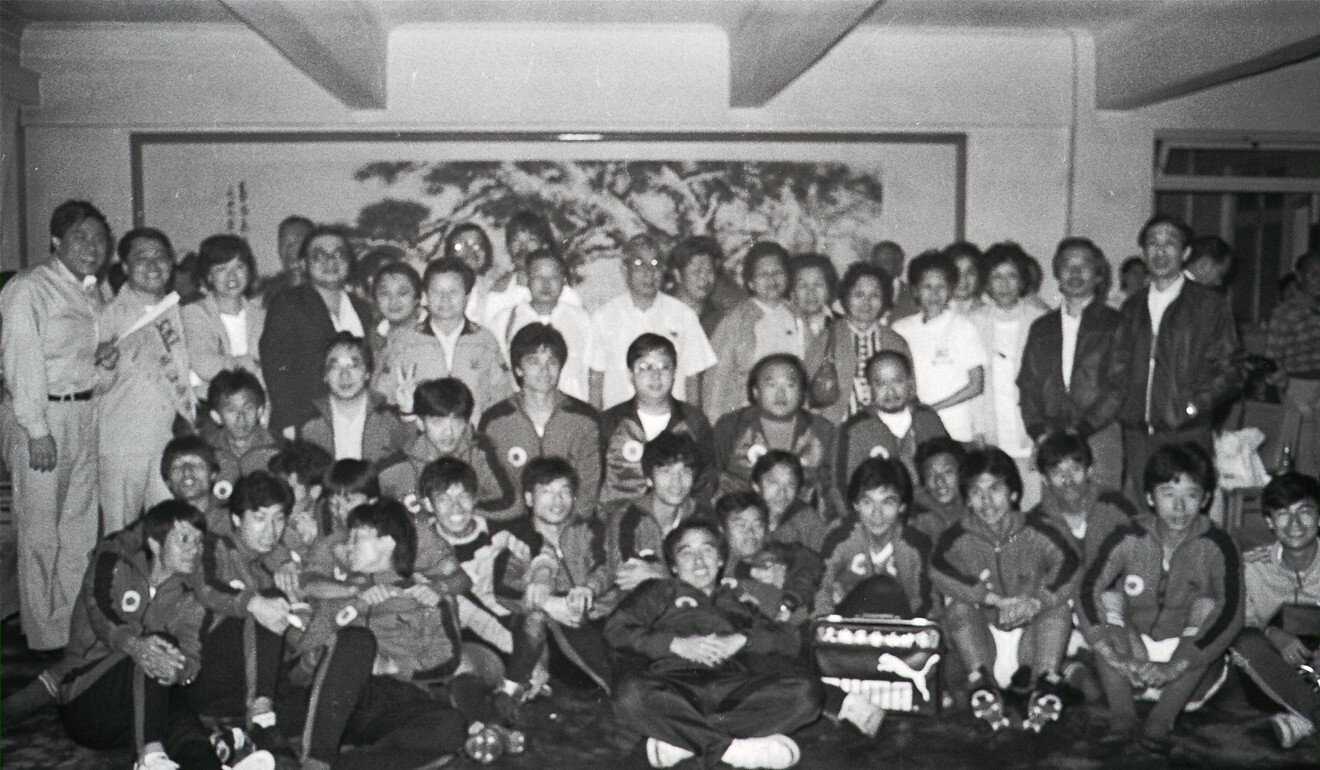
“We had practised the free-kick routine in training,” recalled Cheung, also known as “Little Ghost”. “Wu Kwok-hung passed the ball to the right and I smashed it in.
“The crowd went very quiet. There were not many travelling Hong Kong fans and they were far away on the other side of the stadium, but I could see them celebrating like crazy.”
The visitors were pegged back 10 minutes later and it looked like China would progress until defender Ku Kam-fai volleyed home with 30 minutes left. They held on to record a victory against the odds.
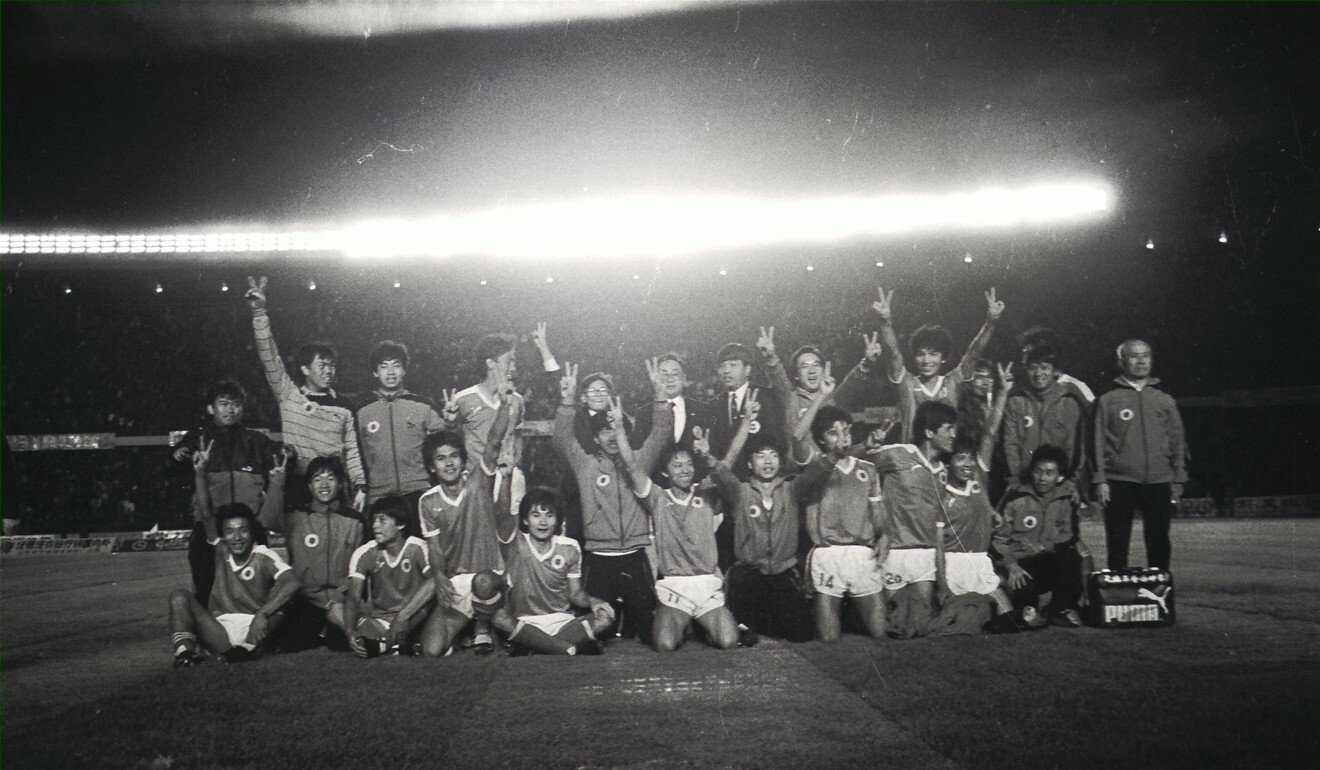
“We didn't think we could win. The pressure was all on China as they were expected to beat us,” Cheung told Post Magazine in 2014. “China knew they just needed to draw to enter the next stage. They thought they would qualify for the World Cup.”
Ku reflected on the performance in 2015, saying: “No one would have expected we could return with a victory against the more powerful mainlanders on their home soil but we made it. There is nothing impossible in soccer but you have to believe in yourself.”
There was bedlam after the final whistle as “Thousands of Chinese soccer fans rampaged outside Peking’s Workers’ Stadium” with headlines including “HK win sparks riot: Angry crowds stone foreigners” the next day, and reports of bus windows smashed, people attacked with bricks and bottles, and journalists spat on.
On May 22, the Post reported “Public Trials ordered for soccer rioters”, while China Daily wrote that Beijing vice-mayor Shang Baifa intervened “to guide the Hong Kong team to safety” and that “he was saved by a Hong Kong player from a flying bottle directed at him”.
“At the full-time whistle I headed to the changing room and a window was smashed right next to me,” Cheung said. “The crowd were starting to throw stuff. It was out of control.”
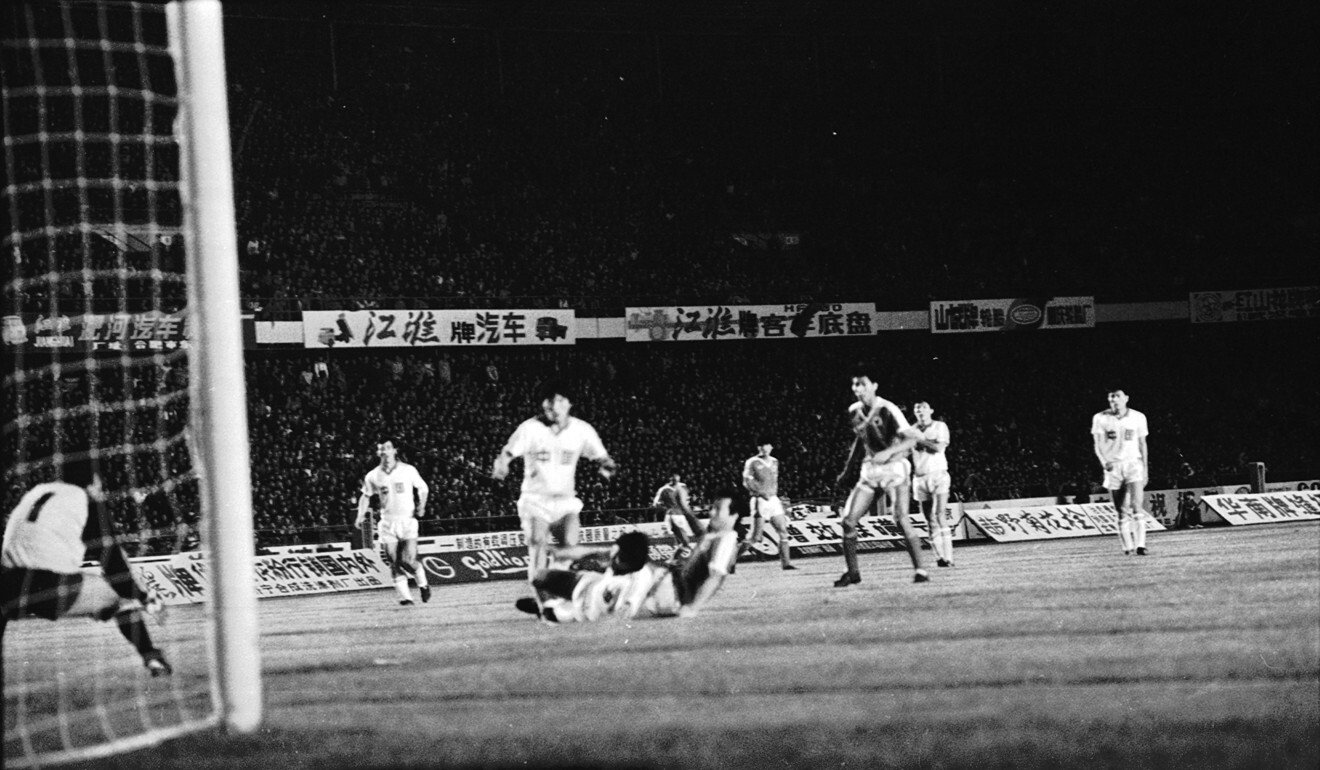
Coach Kwok Ka-ming told the Post that “China played exactly as I thought they would […] they expected us to attack as we needed to win to qualify, but we managed to contain ourselves.”
“As the Hong Kong Football Association chairman, Mr Ho Sai-chu, said as we trod the Workers’ Stadium turf an hour before kick-off,” wrote sports editor Robin Parke, “‘People in Hong Kong …. don’t seem to believe that in soccer anything can happen and often does. We’ve been told that we don’t have a chance and that, anyway, we would rather China won. Well, we want to win … and we can’.”
They would fall short against Japan in the next round.
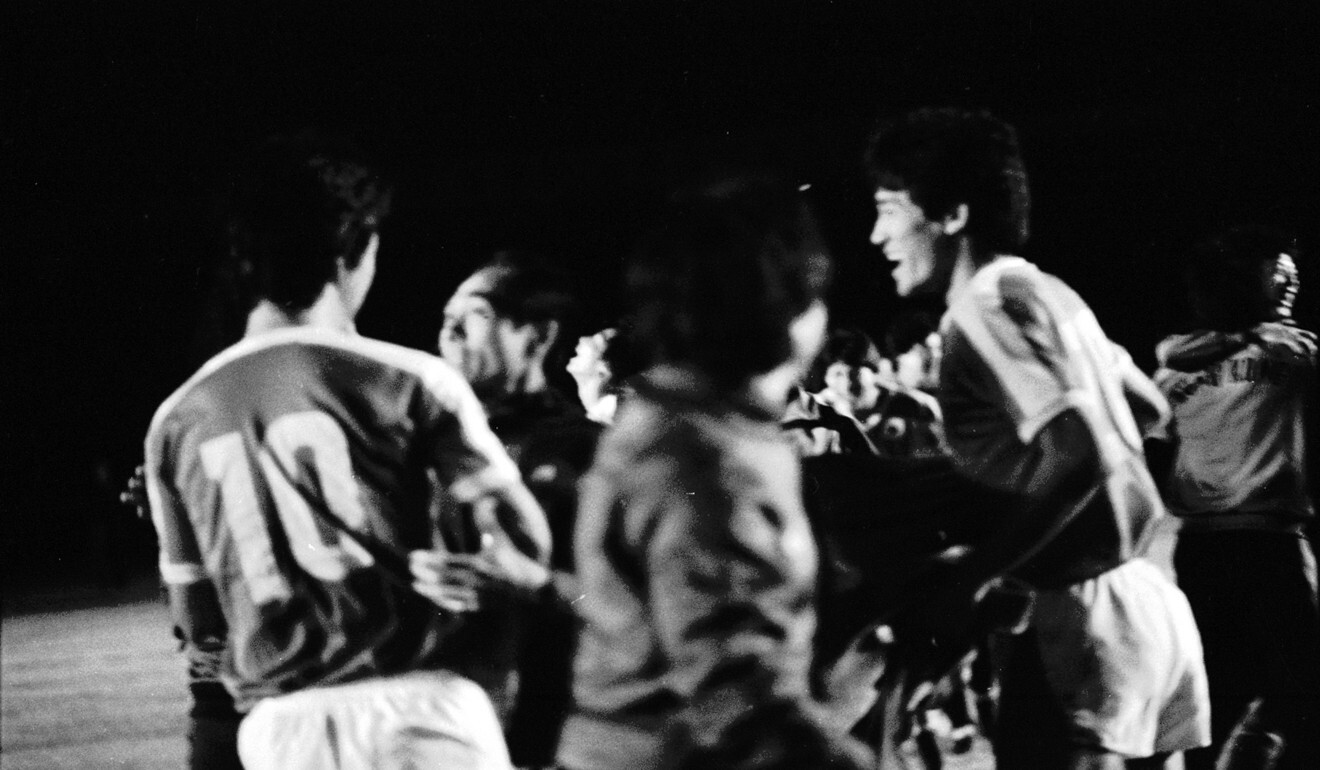
“The Japan game was an anticlimax,” Cheung said. “We weren’t really thinking about qualifying for the World Cup, but Japan were a weaker team than China at the time, so we had a chance.
“We just didn’t play well. Our physical condition wasn’t as good against Japan. We were tired and we weren’t as focused. We were 2-0 down after 11 minutes in Tokyo. The game was already over at that point.”
They would always have May 19 and have deservedly dined out on it ever since.
Help us understand what you are interested in so that we can improve SCMP and provide a better experience for you. We would like to invite you to take this five-minute survey on how you engage with SCMP and the news.

